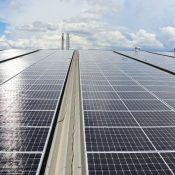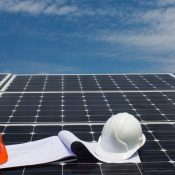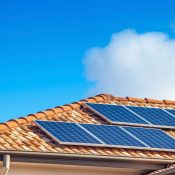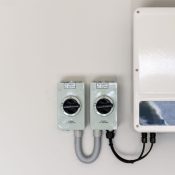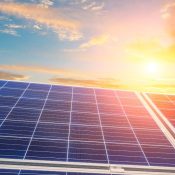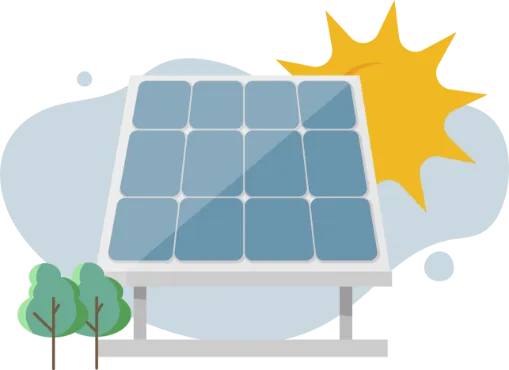How Much Roof Space Do I Need for Solar Panels?
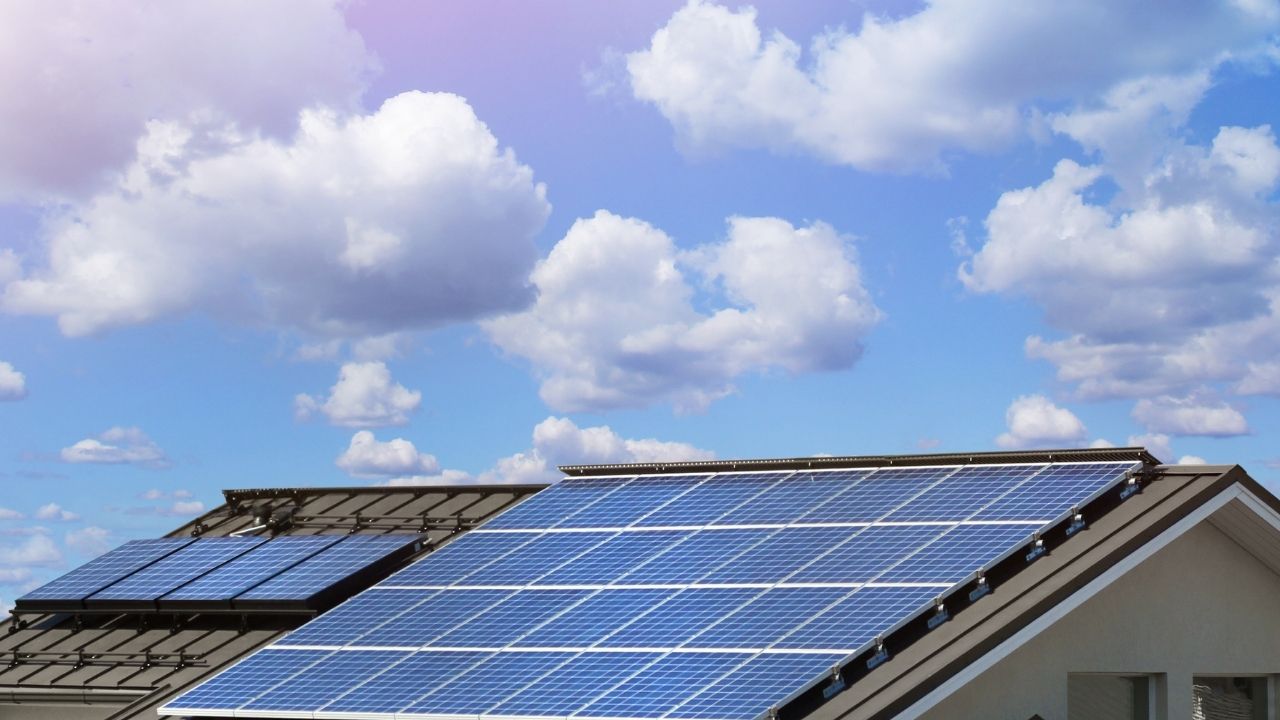
Have you ever thought about powering your home with sunshine? Solar panels are a great way to do this, but one big question often comes up: “How much roof space do I need for solar panels?” This is a super important question, because if you don’t have enough space, you might not be able to make all the electricity you need. Don’t worry; figuring this out isn’t as hard as it sounds.
In this blog, we’ll go through everything you need to know about figuring out how much roof space you need for solar panels. We’ll talk about stuff like how much energy you use, what your roof looks like, and some rules about where solar panels can go on your roof. So, without any further ado, let’s get into it!
Key Factors to Consider:
Energy Usage and Efficiency
When thinking about getting solar panels for your home, the first thing to look at is how much energy your house uses. This is super important because the more electricity you use, the more solar panels you’ll need.
It’s like having a big appetite at a buffet—the hungrier you are, the more food you need to fill your plate! To figure out your energy usage, just check out your electricity bills. They usually tell you how much energy you use each month. Then, think about the future. Are you planning to buy an electric car or add more people to your home? These changes can make your energy needs go up, so it’s good to plan for them now.
Next up, let’s talk about solar panel efficiency. This is all about how good your solar panels are at turning sunlight into electricity. Think of it like cars and gas mileage—some cars go farther on a gallon of gas than others. Solar panels are similar. High-efficiency panels can make more electricity from the same amount of sunlight than lower-efficiency ones.
Accordingly, this means you can get more power from a smaller space on your roof. But keep in mind that these fancy, high-efficiency panels often cost more. So, it’s a balancing act between getting the most efficient panels and sticking to your budget.
Solar panel orientation and roof design
Now, let’s talk about the direction your roof faces and its shape. – These are huge deals for solar panels. Ideally, you want your solar panels to face south. Why? Because in most places, south-facing panels get the most sunlight throughout the day. It’s like when you’re trying to get a tan—you need to be where the sun is! But what if you can’t use the south side? The east or west sides can work too, but they might not catch as much sun. And if you’re thinking about the north side, be prepared for less power since it gets the least sun.
The shape and layout of your roof matter too. Simple, big roofs are great for solar panels. But if your roof has a bunch of different levels or odd angles, it might be a bit like putting together a puzzle. You’ve got to figure out where the panels can fit.
Also, think about stuff like chimneys, vents, or skylights. These can block the sun or take up space where panels could go. Your solar installer can help you figure out the best layout on your roof to get the most sun. It’s all about making sure you use your space in the smartest way possible to catch those rays!
Local codes and safety setbacks
Another key factor in your solar panel journey is understanding local codes and safety setbacks. Just like you need a permit for building a new deck or fence, there are rules for putting up solar panels too. These rules vary from place to place, so it’s a bit like a rulebook that changes depending on where you live.
One common rule is about safety setbacks. This means you can’t put solar panels right up to the edge of your roof. Why? Because if there’s an emergency, like a fire, firefighters need room to walk around your roof safely. Usually, you have to leave some space around the edges of your roof. This can eat up about 25% of your roof’s space that could have been used for solar panels.
So, what do you do? First, check with your local government or a solar professional about the rules in your area. They’ll know all the deepest details. Then, work with your solar installer to design a system that fits these rules but still meets your energy needs. It’s a bit like fitting the biggest possible puzzle piece into a given space—you’ve got to make it count!
Best of all, remember that these rules are there for safety, so it’s super important to follow them. Plus, sticking to the rules means no headaches with fines or having to redo things later.
Roof material and condition
The material and condition of your roof are essential factors in the feasibility and success of a solar panel installation. Different roofing materials have varied characteristics that can influence the installation process. For instance, solar panels are typically easier to install on asphalt shingle roofs due to their durability and ease of drilling. This common roofing material is well-suited for the standard installation procedures of solar panels.
On the other hand, more delicate materials like slate or tile require a more careful approach to avoid damage during installation. Metal roofs, particularly those with standing seams, offer a unique advantage as they often allow for solar panel installation without the need for drilling, thus preserving the integrity of the roof.
Additionally, the age and overall condition of your roof are paramount. Considering that solar panels have a lifespan of about 25 years, it’s essential that your roof is in a condition to last for a similar duration. Installing solar panels on a roof that requires significant repairs or replacement in the near future can lead to additional costs and complexities.
Therefore, it’s advisable to conduct a thorough assessment of your roof’s condition, possibly consulting with a roofing professional, before proceeding with solar panel installation. This ensures a stable and durable foundation for your solar energy system.
Choosing a solar panel installer
Finding the right installer for your solar panels is vital. It’s important to select professionals who are experienced and have a strong reputation. Verify their credentials to ensure they are licensed and insured, and look into their history of installations and customer feedback.
Consequently, when reviewing proposals, consider the overall value they offer, not just the price. The quality of panels, warranty details, and support after installation are key factors that will impact your experience and the system’s efficiency. It’s also essential to have clear communication with your installer. Choose a team that understands your needs, especially in terms of the roof space requirements for solar panels.
Furthermore, if you’re ready to find out how much roof space you need for solar panels, consider reaching out to Going Solar. Our experts are here to provide you with a customised solution that fits your home’s energy needs. Contact Going Solar for a consultation and take a confident step towards efficient solar energy usage in your home.
In Our Opinion
Determining the right amount of roof space for solar panels is a process that combines several important factors. You need to consider your home’s energy usage and efficiency, the orientation and layout of your roof, adherence to local building codes and safety requirements, the type of material your roof is made of, and its overall condition.
Additionally, choosing a skilled and reliable solar panel installer is crucial for a successful installation. Each of these elements is key to ensuring that your solar panel system is not only effective but also aligns with both practical and safety considerations.
By thoughtfully addressing these areas, you can make a well-informed decision about embracing solar power for your home, ultimately leading to a sustainable and energy-efficient lifestyle. Remember to always seek expert advice to maximise the benefits of your solar energy investment.
Planning a switch to solar energy?
Contact Going Solar now and Get Free Advice & Quote Within Minutes!
Frequently Asked Questions
Contact Going Solar Now!
Joe Brennan
Founder @ Going Solar
Joe Brennan, the founder of Going Solar, is dedicated to making solar power mainstream in Ireland and meet SEAI objectives. With a focus on affordability and sustainability, he is bringing renewable energy solutions to homes, reducing costs & environmental impact.
Recent Posts

